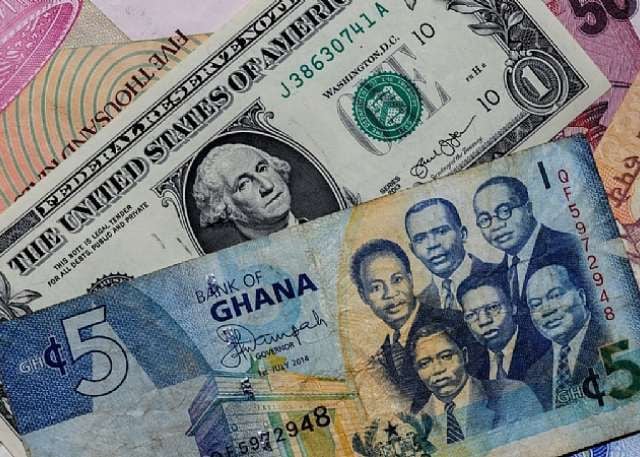The Ghanaian cedi experienced further depreciation against the US dollar on Friday, August 29, 2025, continuing a concerning trend of declining value. Across various exchange platforms, the cedi struggled to maintain its footing against the greenback. Data from Cedirates.com, a reputable Ghanaian platform tracking currency and fuel prices, indicated an average buying rate of GHS11.15 and a selling rate of GHS11.71 for the US dollar. This represents a significant disparity between buying and selling prices, highlighting the volatility and pressure on the cedi in the open market. Forex bureaus, which cater to individual transactions, presented even less favorable rates, with the cedi trading at GHS12.20 for dollar purchases and GHS12.60 for dollar sales. This suggests a further weakening of the cedi in the retail segment of the foreign exchange market, impacting individuals directly.
The interbank market, where financial institutions trade currencies, offered a slightly more stable, albeit still depreciated, exchange rate. According to the Bank of Ghana, the cedi traded at GHS11.24 for buying and GHS11.26 for selling against the US dollar. This marginally better performance in the interbank market might be attributed to larger transaction volumes and the influence of the central bank’s policies. However, the proximity of the interbank rates to the open market rates suggests the pervasive pressure on the cedi across the entire foreign exchange landscape. The overall picture painted by these figures is one of a weakening cedi, struggling to hold its ground against the US dollar, a trend that has implications for the Ghanaian economy and its citizens.
The cedi’s performance against other major currencies, the British pound and the euro, mirrored its struggles against the dollar. Forex bureaus quoted an average buying rate of GHS14.91 and a selling rate of GHS15.78 for the British pound, while the Bank of Ghana’s interbank rate for the pound stood at GHS15.21. Similarly, the euro traded at GHS12.87 for buying and GHS13.63 for selling at forex bureaus, with the interbank rate at GHS13.14. These figures highlight the broader weakness of the cedi in the international currency market, not just its performance against the US dollar. The depreciation against these major currencies reflects the underlying economic factors contributing to the cedi’s overall decline.
Money transfer services, a vital lifeline for many Ghanaians receiving remittances from abroad, offered slightly more competitive rates compared to traditional forex bureaus. LemFi and Afriex, two prominent remittance platforms, presented rates of GHS11.20 and GHS11.00, respectively, for dollar remittances from the US or UK to Ghana. For the British pound, LemFi and Afriex offered GHS15.08 and GHS14.94, respectively. Euro remittances via these platforms were quoted at GHS12.75 and GHS12.81 for Afriex and Lemfi, respectively. These more favorable rates underscore the competitive landscape of the remittance market and the potential benefits for individuals seeking to send or receive money from abroad.
The rates offered by these money transfer operators reflect the efficiency gains and lower operational costs associated with digital platforms. This competition within the remittance space benefits consumers by providing more attractive exchange rates compared to traditional brick-and-mortar forex bureaus. However, even these relatively better rates remain indicative of the overall depreciated value of the cedi, underscoring the need for broader economic solutions to address the underlying issues driving currency weakness.
For digital subscriptions, such as Netflix, Spotify, and Apple Music, using Visa and Mastercard, the exchange rate remained fixed at GHS12.20 for both buying and selling. This static rate likely reflects agreements between payment processors and service providers. However, it also highlights the impact of the cedi’s depreciation on the cost of accessing international digital services for Ghanaian consumers. Overall, the August 29, 2025 data paints a clear picture of a weakening Ghanaian cedi, impacting its purchasing power across a range of transactions, from everyday forex exchanges to international remittances and digital services. The continued depreciation necessitates a deeper understanding of the underlying economic factors contributing to this trend and the implementation of effective strategies to stabilize the cedi and protect the economic well-being of Ghanaians.














